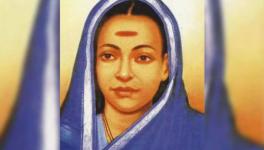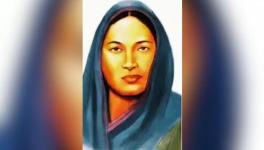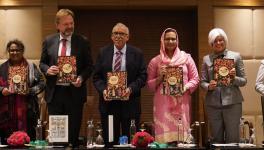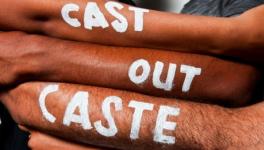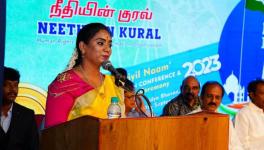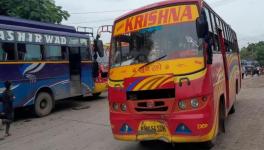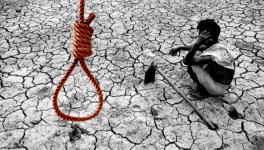Banda: Dalit Loses Arm to Caste Violence, Family Struggles to Lodge FIR
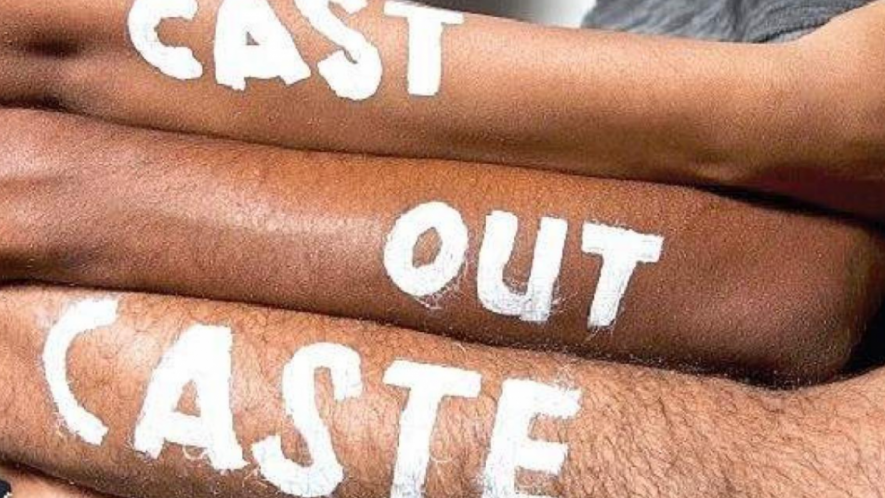
Representational use only.
Banda/Lucknow: A young dalit man from Masuri Kherwa village in Mahua block in Uttar Pradesh's Banda district has been running from pillar to post for the past two years, seeking justice and punishable action against an ‘upper caste’ man from his village who allegedly thrashed him at an 'aata ki chakki' (flour mill) where he ended up losing his right arm.
Jitendra Kumar, a jatav by caste, had dreamt of using his right hand for eradicating his poverty by securing higher education. His wishes are now shattered. Kumar alleged he was at his home at 3 pm on January 21, 2020, when his fellow villager Satya Prakash Mishra came and asked to accompany him to the nearby flour mill. He refused, saying he had some other work to do.
The refusal enraged Mishra to the extent that he allegedly hurled casteist slurs and threatened him to face dire consequences. Following a heated verbal exchange, the minor was "forcibly" made to sit on the accused's bike to go to the mill.
As the duo reached the mill with a wheat sack for grinding, the victim was allegedly thrashed, shoved and pushed. Kumar, in the process, lost balance and fell on a machine, which crushed his right hand.
When he began bleeding profusely, the accused took him to a hospital, which referred the victim to a multi-speciality hospital in Kanpur. The doctors there had to amputate his right arm to prevent the infection from spreading further.
Amid the upcoming polls, dalits in the region riddled by insecurity are now rethinking whom to vote for. Traditionally, the region was a stronghold of the BSP. However, the BJP made a clean sweep in the area in 2017.
PRESSURE FROM THE ACCUSED
The victim's father, Vivek Kumar, said that the accused told him that he would bear the treatment, and pressurised him to not pursue the matter legally. "He also promised to give compensation if I don't file a police complaint. But I refused," he alleged.
The next day, he said, the accused, accompanied by others, came to the hospital and asked him to sign a paper, following which the victim would get some money.
"Since I am illiterate, I could not read what was exactly written on the paper. I contended and signed the document, which later turned out to be a 'sulah nama' (a compromise between accused and victim) - declaring that my son accidentally fell on the machine that resulted in crushing his hand," he described.
Even after signing the paper, as his father said, the victims did not get a single penny either for treatment or as compensation.
Cops took nine months to register a First Information Report (FIR)
The police took whole nine months to register an FIR under IPC sections 326 (voluntarily causing grievous hurt by dangerous weapons or means), 504 (insult intended to provoke breach of peace), 506 (criminal intimidation) and sections 3(1)(d), 3(1)(DHA) and 3(2)(V) of the SC/ST Act.
The incident took place on January 21, 2020, but the FIR was registered on September 24, 2020; and that too was on the court's intervention.
After the victim met all senior police officials with the request to register a case against the accused to no avail, he approached a designated SC/ST court, praying it to direct police officials to lodge an FIR based on his complaint.
"The court found merit in our arguments and directed the police to lodge a case under appropriate sections," said his lawyer Mahendra Sahu.
The police, as per the FIR, said they got the victim's complaint on September 24, 2020, based on which the FIR was filed.
Contrary to what the police said, the victim's father claimed he had filed the complaint soon after the incident. "The police kept shielding the accused. No one was ever arrested. Even today, they are protecting the perpetrators," alleged Vivek.
A chargesheet has been filed in the matter through which the accused appear to have been given a clean chit.
"The police in their final report has stated that both Jitendra (victim) willingly went to the mill with Mishra (the victim). The former lost his balance and therefore, he accidentally fell on the machine. As a result, his right arm was badly injured and amputated later. The allegation of casteist slurs and physical assault were found to be untrue," said the lawyer.
‘SULAHNAMA’ FRAUDULENTLY USED TO WEAKEN THE CASE
The victim, his lawyer, and those helping them in the case alleged the accused had taken the signature on a stamp paper to prove his 'innocence'.
"To make the victim's complaint null and void, the accused submitted the paper to the police along with statements of few people who testified his innocence. Interestingly, those who have reportedly testified as witnesses have been manufactured. Their Adhaar cards were taken for some other works and used in this case," alleged Mobina Khan, an activist associated with Vidya Dham Samiti who is helping the victim in the legal battle.
Raja Bhiaiya of Vidya Dham Samiti said that such atrocities in Bundelkhand are a widespread affair; members of the dalit community are forced to work in feudal people who belong to mainly upper caste. If they refuse to work, their 'hukka pani' will be stopped; they will also be not allowed to defecate in their fields. "We can sense how rotten our society is. Despite losing one of his hands, Jitendra and his family are struggling to get an FIR registered."
NewsClick spoke to three persons who have allegedly given statements supporting the accused. But none of them wished to come on record, arguing, “Let's move on as pursuing it will further deepen the rift between the two communities here.”
They privately admitted that their statements have been "manufactured".
This is not an isolated case of dalit atrocities in Uttar Pradesh. The state has registered a maximum of 36,467 cases of crime against scheduled castes (SC) in the three years, followed by Bihar (20,973 cases), Rajasthan (18,418) and Madhya Pradesh (16,952), as per data from the Home Ministry.
Nearly 139,045 cases under crime against dalits have been registered in different states between 2018 and 2020, with 50,291 such crimes reported last year alone, the government had told parliament.
The National Dalit Movement for Justice (NDMJ) and National Campaign of Dalit Human Rights (NCDHR) – organisations defending the rights of dalits – said it was a good sign that the number of crimes against dalits being reported is increasing in some states. Still, it was no sign that justice was handy. The organisation claimed the number of cases underestimates the ground reality. There is a climate of hate against the marginalised in the country. The incident of atrocities is reported because of the growing awareness among dalit communities about the law.
Ram Dular, state coordinator, NDMJ-NCDHR, Uttar Pradesh, said the grievous nature of the crime exposed the intersectional areas of caste and gender, with dalit bearing the brunt of systemic violence perpetrated by people from the upper caste.
“In most of the states, because of the hostility against dalits and the nexus of medical officers with police with caste groups, the complainants are forced to compromise,” Ram Dular alleged. “Unless there is a committed activist standing firm with the family, it is difficult to see many of these complaints through.”
An analysis by NDMJ showed that more than 60,000 cases of atrocities against SC remained pending investigation at the end of 2021.
"Our experience says that when it comes to atrocities on dalits, from the day of incident, police resort to various machinations to dilute the seriousness of the violence and shield accused persons from prosecution. Even when the case reaches the judiciary, victims face judicial biases from different court actors. How long will dalits face such impunity? In cases related to dalit atrocity, we found officials are involved in shoddy investigations, and they must be punished under Section 4 for wilful fully neglecting their duties under the PoA Act and mandatory provisions. Govt should ensure the appointment of Special Prosecutor of victims' choice as per PoA Act Rule 4(5) is implemented in this case for a fair trial," said Rahul Singh, general secretary of National Dalit Movement for Justice.
Law has not provided enough protection to dalits with them often being victims of atrocities when they seek equal rights, observed former IPS officer SR Darapuri, an Ambedkarite activist and politician.
"There is dalit assertion which is often met by the dominating castes in the village," Darapuri said. "less than half of atrocities against dalits hardly reported at police stations. I had witnessed this when I was a police officer in Uttar Pradesh. The reason: anti-dalit mindset. If somehow the family reaches the court under 156(3) CrPC, the police officers never turn the complaint into an FIR. Furthermore, the victim families struggle for years to see these cases conclude. Less than 10 to 20% cases get a conviction, and over half of them are not pursued, as often the pressure on the families is very high," he said, adding that during Mayawati's tenure, he conducted a study where he found only 40% atrocities against dalit were reported in the state.
Get the latest reports & analysis with people's perspective on Protests, movements & deep analytical videos, discussions of the current affairs in your Telegram app. Subscribe to NewsClick's Telegram channel & get Real-Time updates on stories, as they get published on our website.









